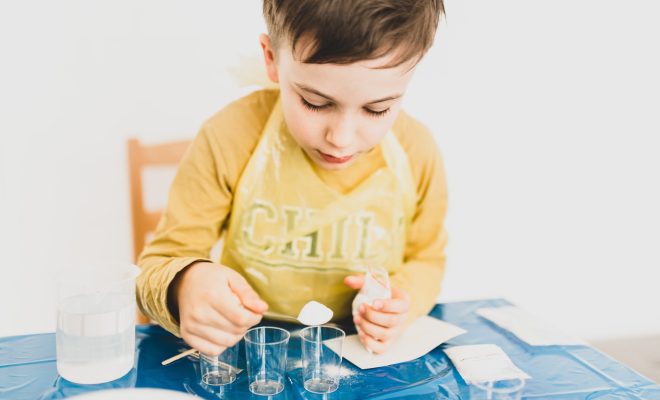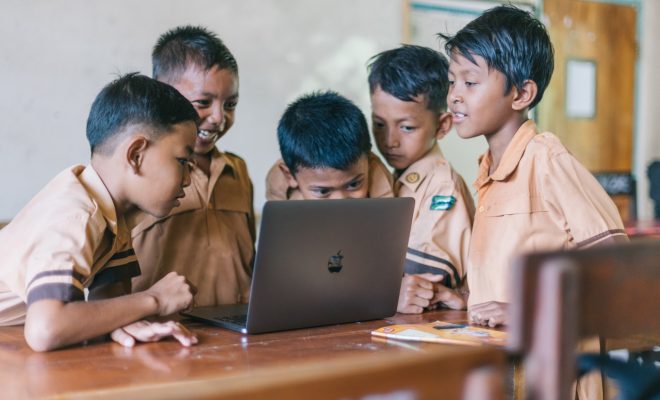JetBlue campaigns against book deserts – Part I

**The Edvocate is pleased to publish guest posts as way to fuel important conversations surrounding P-20 education in America. The opinions contained within guest posts are those of the authors and do not necessarily reflect the official opinion of The Edvocate or Dr. Matthew Lynch.**
A guest post by Anwar Y. Dunbar
“Why do you use those Big words all of the time?” is a question I was asked regularly by some of my fellow African American classmates in Middle school in my hometown of Buffalo, NY. It was a question which I didn’t understand at the time. It wasn’t until later in life, that I realized that my vocabulary was a byproduct of my parents’ college educations. In addition to their educations, there were books in the house and reading was encouraged. It wasn’t until much later in life that I realized not every home was like ours and that places called “Book Deserts” existed.
For the last four years, the Airline JetBlue has teamed up with Random House Children’s Books in a campaign titled; Soar with Reading. In the program, JetBlue has donated books to families in low income neighborhoods hoping to encourage a love for reading in young people. Recently the Airline has teamed up with Dr. Susan Neuman, an Education Advocate, and former Assistant Secretary of the U.S. Department of Education who has conducted extensive research on “Book Deserts” across America, and highlighted the lack of access that low income children have to age appropriate books. Among the most significant (and alarming) of her findings is that in neighborhoods like Washington DC’s Anacostia, there is only 1 book for every 830 children.
In an effort to help combat this issue, starting this July JetBlue will roll out a number of Book Vending machines throughout the Anacostia neighborhood. The goal of this effort will be to give children within Anacostia consistent access to books. Washington D.C. will be the first city to receive these vending machines and will serve as the test city for a potentially larger program.
On Wednesday June 10, 2015, Dr. Neuman and JetBlue’s Icema Gibbs traveled to Washington, D.C. to present Dr. Neuman’s research and to unveil JetBlue’s plans at the Social Innovation Summit. Prior to their presentation, I was granted the privilege of interviewing them. The main points from our interview will be described below. For simplicity, I will be identified by my initials; AD. Susan Neuman and Icema Gibbs will be identified by their respective initials; SN and IG.
AD: First off. Thank you for allowing me the opportunity to conduct this interview. What’s the purpose of the Social Innovation Summit?
IG: We’re going to the Summit to introduce our exciting new summer program here in Anacostia. The Summit is an opportunity for people from the Public and Private sectors to talk about how to move the needle in terms of social change. It’s a great opportunity to share ideas and learn about what other people are doing.
AD: Dr. Neuman, your research has studied Book Deserts and I’m assuming they’re similar to Food Deserts. What are they and why are they important?
SN: The two are similar. The whole notion is that in poor communities there are no books. Therefore the question is; what are parents supposed to read to their children if there are no books available? We want to call attention to this because the differences between middle income and poor communities are extreme. So we often question why children have such disparities in achievement and why they’re not achieving in schools. One of the reasons is that some communities are bereft of the cognitive content of books. So we want to bring attention to the fact that there are such limitations for our children especially during the summer when the “Summer Slide” occurs. Kids who are in the program Head Start for example are doing well while the program is in session, but when Kindergarten starts the next fall, they are behind, and that’s because there is little to do over the summer in terms of reading.
AD: How do these Book Deserts come about? What would you attribute to this circumstance?
SN: We think that the proprietors don’t feel that people in low-income neighborhoods will buy books, and one of the things we want to show is that there is a tremendous demand for books. Many families in poor communities desperately want to achieve, want to read to their children, avail themselves tremendously to the library when its open, but the libraries are often closed at night when you want to read to your child. We want to show that parents will buy them if available.
AD: Have you interviewed parents about this?
SN: Yes it was a national study in 2001. It asked the question; “If you had any discretionary money, what would you buy?” Our results showed that parents even from very low-income communities said they would buy books. Many of families don’t have discretionary money though. Is it diapers or is it a book? They have to make those decisions. So one thing we know is that there is an interest in getting books. We know that if there are books in homes, kids are more likely to be ready for Kindergarten.
IG: After Susan had done her great work, we tried to figure out how we could help. We’ve been doing Soar with Reading, and we wondered if it was changing people for the better. Susan suggested that we could do a little bit more, and if you have the opportunity to make an investment that will move the needle with respect to social change, then that’s what we want to do. Therefore we are going to be put Vending Machines in Anacostia, where the kids will be able to get the books free of charge in three strategic locations to be announced. On Wednesday we will have office hours so we’ll have people to read to the children, interact with the children and to collect data.
AD: Students will be free to take out the books? So beyond today’s Summit, are you all going to have an official unveiling?
IG: Yes. In the near future, we hope do start the program.
You can read the rest of the conversation by clicking here.
_________
Anwar Y. Dunbar is a Regulatory Scientist in the Federal Government where he registers and regulates Pesticides. He earned his Ph.D. in Pharmacology from the University of Michigan and his Bachelor’s Degree in General Biology from Johnson C. Smith University. In addition to publishing numerous research articles in competitive scientific journals, he has also published over one hundred articles for the Examiner (www.examiner.com) on numerous education and literacy related topics in the areas of; Current Events and Culture, Higher Education, Financial Literacy, and STEM (Science, Technology, Engineering and Mathematics). He actively mentors youth and works to spread awareness of STEM careers to minority students. He also tutors in the subjects of Biology, Chemistry and Physics. He is a native of Buffalo, NY. He can be contacted via email at [email protected], and can be followed on Twitter @anwaryusef.






